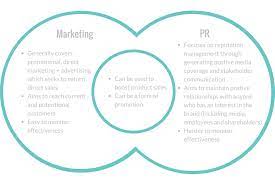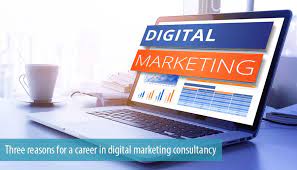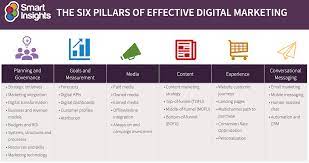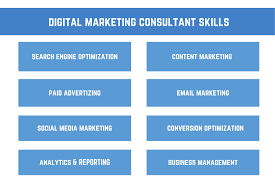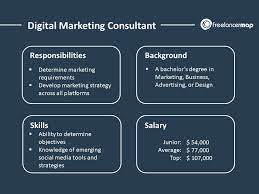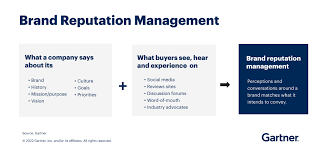Unleashing the Power of PR: How a Social Media Agency Can Elevate Your Brand
In today’s digital age, the role of public relations (PR) has expanded to encompass the vast landscape of social media. As businesses strive to establish a strong online presence and connect with their target audience, the need for a PR and social media agency has become increasingly crucial.
A PR and social media agency serves as a strategic partner for businesses looking to navigate the ever-changing world of digital communication. These agencies specialize in crafting compelling narratives, managing online reputation, and leveraging social media platforms to amplify brand messaging.
One of the key advantages of partnering with a PR and social media agency is their expertise in understanding the nuances of various social media platforms. They have an in-depth understanding of how each platform operates, including algorithms, content formats, and user behavior. This knowledge allows them to create tailored strategies that maximize engagement and reach for their clients.
Moreover, PR and social media agencies are adept at identifying trends and capitalizing on them. They stay up-to-date with the latest industry developments, emerging platforms, and viral content. By leveraging these trends effectively, they can help businesses gain visibility and stand out from their competitors.
Another crucial aspect that a PR and social media agency brings to the table is crisis management. In today’s interconnected world, a single negative comment or viral backlash can significantly impact a brand’s reputation. These agencies are equipped to handle such situations promptly and effectively by implementing crisis communication strategies that minimize damage while maintaining transparency.
Furthermore, a PR and social media agency can provide valuable insights through analytics and data-driven reporting. They monitor key performance indicators (KPIs) such as engagement rates, reach, sentiment analysis, conversion rates, and more. By analyzing this data, they can refine strategies for better results over time.
Collaboration is at the heart of every successful partnership between businesses and PR/social media agencies. These agencies work closely with their clients to understand their brand values, target audience demographics, business goals, and unique selling propositions. This collaborative approach ensures that the agency’s efforts align with the client’s overall marketing and communication objectives.
In conclusion, a PR and social media agency plays a pivotal role in helping businesses navigate the complex world of digital communication. Their expertise in crafting compelling narratives, managing online reputation, leveraging social media platforms, crisis management, and data-driven insights can make a significant difference in establishing a strong online presence and connecting with target audiences. By partnering with a PR and social media agency, businesses can stay ahead of the curve and achieve their communication goals in today’s dynamic digital landscape.
8 Essential Tips for Choosing a PR and Social Media Agency in the UK
- Research the agency you are considering to ensure their services and expertise meet your needs.
- Ask for case studies and references from previous clients to get an idea of the agency’s capabilities.
- Consider the size of the agency – larger agencies may have more resources but smaller agencies may provide more personalised service.
- Ask about their approach to PR and social media campaigns, including how they measure success.
- Discuss fees upfront – make sure you know exactly what is included in any package you purchase or what additional costs may be incurred during a campaign or project.
- Ensure there is a clear understanding of expectations for both parties at the start of any working relationship with an agency – this should include communication channels, deadlines, deliverables etc..
- Look for an agency that provides ongoing support and advice – not just one-off campaigns or projects but longer term strategic advice on how to best use PR and social media for your business objectives over time.
- Make sure there is good chemistry between you and the team at the agency – it’s important that everyone is on board with each other in order to get the best results from your PR and social media campaigns!
Research the agency you are considering to ensure their services and expertise meet your needs.
When it comes to choosing a PR and social media agency, conducting thorough research is essential to ensure that their services and expertise align with your specific needs. Selecting the right agency can make a significant impact on the success of your brand’s communication efforts.
Start by exploring their website and portfolio. Look for case studies, client testimonials, and examples of their previous work. This will give you insights into their capabilities, creativity, and the results they have achieved for other clients. Pay attention to whether they have experience in your industry or with businesses similar to yours.
It’s also crucial to assess the agency’s expertise in social media management. Check if they have a strong presence on various social media platforms themselves. This demonstrates that they practice what they preach and are knowledgeable about leveraging these platforms effectively.
Take the time to read reviews or seek recommendations from trusted sources within your industry. Feedback from previous or current clients can provide valuable insights into an agency’s professionalism, communication style, responsiveness, and ability to deliver results.
Consider scheduling a consultation or meeting with the agency before making a final decision. This allows you to discuss your goals, challenges, and expectations directly with them. It’s an opportunity for you to gauge their understanding of your business and see if there is synergy between your team and theirs.
Furthermore, inquire about the specific services they offer. Do they provide comprehensive PR strategies? Are they proficient in crisis management? Can they create engaging content? Ensure that their service offerings align with what you require for your brand’s communication needs.
Lastly, consider the agency’s values and culture. Look for agencies that align with your company’s values and work ethic as this will foster a more productive partnership.
By conducting thorough research on potential PR and social media agencies, you can make an informed decision based on their expertise, track record, client feedback, service offerings, and cultural compatibility. Taking this step will help ensure that you choose an agency that is the right fit for your brand and can effectively meet your communication needs.
Ask for case studies and references from previous clients to get an idea of the agency’s capabilities.
When considering partnering with a PR and social media agency, it is essential to gather as much information as possible to ensure they have the capabilities and expertise you need. One valuable tip is to ask for case studies and references from their previous clients.
Case studies provide concrete evidence of an agency’s past successes and showcase their ability to deliver results. By reviewing these case studies, you can gain insights into the strategies they implemented, the challenges they overcame, and the outcomes they achieved for their clients. This information allows you to assess whether their approach aligns with your business goals and if they have experience in your industry or niche.
In addition to case studies, asking for references from previous clients can give you a deeper understanding of the agency’s capabilities. Speaking directly with these references allows you to ask specific questions about their experience working with the agency. You can inquire about their level of satisfaction, the quality of work delivered, communication processes, and overall professionalism. These conversations provide valuable insights that help you make an informed decision.
By requesting case studies and references, you gain a clearer picture of what it would be like to partner with the PR and social media agency. It helps establish trust and confidence in their abilities before committing to a long-term collaboration.
Remember that each business has unique requirements, so it’s crucial to evaluate case studies and references in relation to your specific needs. Look for agencies that have experience working with businesses similar to yours or those that have achieved results in areas relevant to your goals.
Ultimately, asking for case studies and references is an excellent way to assess an agency’s track record and determine if they are the right fit for your business. It provides valuable insights into their capabilities, expertise, and client satisfaction levels – all essential factors when making a decision about partnering with a PR and social media agency.
Consider the size of the agency – larger agencies may have more resources but smaller agencies may provide more personalised service.
When it comes to choosing a PR and social media agency, one important factor to consider is the size of the agency itself. While larger agencies may boast an array of resources and an extensive client portfolio, smaller agencies can offer a more personalized and tailored service.
Larger agencies often have a wealth of resources at their disposal. They may have larger teams with diverse skill sets, advanced technology and tools, and established relationships with media outlets and influencers. This can be advantageous for businesses looking for comprehensive support across various communication channels.
On the other hand, smaller agencies have their own unique advantages. With fewer clients to manage, they can dedicate more time and attention to each individual client. This means that businesses working with smaller agencies may experience more personalized service and a closer working relationship with the agency’s team members.
Smaller agencies are often known for their flexibility and agility. They can quickly adapt to changes in the industry or client needs, allowing for faster decision-making processes and implementation of strategies. Additionally, smaller agencies may have a more entrepreneurial spirit, bringing fresh ideas and innovative approaches to the table.
Choosing between a larger or smaller agency ultimately depends on your specific needs as a business. If you require extensive resources, widespread reach, and specialization in multiple areas, a larger agency might be the right fit for you. However, if you value personal attention, close collaboration, and agility in adapting to your unique requirements, then opting for a smaller agency could be the way to go.
It’s important to thoroughly research both types of agencies before making your decision. Consider factors such as their track record, expertise in your industry or niche, client testimonials or case studies, and their ability to meet your specific goals.
In conclusion, when selecting a PR and social media agency, carefully consider whether you prioritize the resources offered by larger agencies or the personalized service provided by smaller ones. Both options have their merits; it ultimately comes down to finding an agency that aligns with your business objectives and values, ensuring a successful and fruitful partnership.
Ask about their approach to PR and social media campaigns, including how they measure success.
When choosing a PR and social media agency, it’s essential to inquire about their approach to campaigns and how they measure success. This information will give you valuable insights into their strategies and help you determine if they are the right fit for your business.
A reputable agency will have a well-defined approach to PR and social media campaigns. They should be able to articulate their process, from initial research and planning to execution and evaluation. Understanding their methodology will give you confidence in their ability to deliver results.
Additionally, it’s crucial to ask about how they measure success. A reliable agency will have clear metrics in place to evaluate the effectiveness of their campaigns. These metrics can include key performance indicators (KPIs) such as engagement rates, reach, website traffic, lead generation, conversions, brand sentiment analysis, and more.
By discussing the measurement of success upfront, you can align your expectations with the agency’s capabilities. It also allows you to gauge their level of transparency and accountability. A good agency will be able to provide regular reports and updates on campaign performance while offering insights on areas of improvement.
Furthermore, understanding how an agency measures success can also help you assess their ability to adapt and optimize campaigns over time. The digital landscape is constantly evolving, so it’s crucial that the agency can analyze data, identify trends, and make data-driven adjustments when necessary.
Ultimately, asking about an agency’s approach to PR and social media campaigns and how they measure success is essential for making an informed decision. It ensures that both parties are aligned in terms of goals, expectations, and evaluation methods. By choosing an agency with a robust approach and a focus on measurable outcomes, you increase your chances of achieving successful PR and social media campaigns that drive tangible results for your business.
Discuss fees upfront – make sure you know exactly what is included in any package you purchase or what additional costs may be incurred during a campaign or project.
When considering partnering with a PR and social media agency, it is essential to discuss fees upfront. Understanding the financial aspect of the partnership is crucial to avoid any surprises or hidden costs down the line.
By discussing fees upfront, you can gain clarity on what is included in the package you purchase or the services provided during a campaign or project. This transparency allows you to make an informed decision and ensure that your budget aligns with your expectations.
A reputable PR and social media agency will be transparent about their pricing structure and clearly outline what services are covered within a specific package. They will also be upfront about any additional costs that may arise during the course of your collaboration.
By having a comprehensive understanding of fees, you can effectively plan your budget and allocate resources accordingly. You can assess whether the proposed services align with your business goals and determine if there are any optional add-ons that would benefit your brand’s communication strategy.
It’s important to remember that quality work often comes at a reasonable cost. While it’s natural to look for cost-effective solutions, opting for agencies solely based on low prices may compromise the quality of service provided. It’s advisable to strike a balance between affordability and expertise, ensuring that you receive value for your investment.
In addition to discussing fees, it is recommended to inquire about payment terms, such as whether payments are made upfront or in installments. Clarifying these details will help establish a smooth working relationship with the agency.
In conclusion, discussing fees upfront is an essential tip when engaging with a PR and social media agency. By gaining clarity on pricing structures, understanding what is included in packages or campaigns, and being aware of potential additional costs, you can make informed decisions that align with your budget and business goals. Remember, transparency in financial matters sets the foundation for a successful partnership with an agency that meets your communication needs effectively.
Ensure there is a clear understanding of expectations for both parties at the start of any working relationship with an agency – this should include communication channels, deadlines, deliverables etc..
When partnering with a PR and social media agency, it is crucial to establish a clear understanding of expectations from the very beginning. This ensures a smooth working relationship and sets the stage for success.
The first step is to define communication channels. Determine how you will stay in touch with the agency, whether it’s through email, phone calls, or project management tools. Clear communication channels foster transparency and enable both parties to stay updated on progress, address concerns promptly, and collaborate effectively.
Setting deadlines is equally important. Establishing realistic timelines for deliverables allows for proper planning and ensures that both parties are on the same page regarding project milestones. Deadlines provide a sense of structure and help maintain momentum throughout the campaign or project.
Clearly defining deliverables is another crucial aspect of managing expectations. Be specific about what you expect from the agency in terms of outcomes, such as media coverage, social media engagement metrics, or content creation. This clarity helps align efforts towards achieving desired results.
In addition to these key elements, it’s essential to establish parameters for reporting and evaluation. Determine how often progress reports will be shared and what metrics will be measured to evaluate success. Regular reporting allows for transparency and provides an opportunity to assess the effectiveness of strategies while making any necessary adjustments along the way.
By ensuring a clear understanding of expectations at the start of your working relationship with a PR and social media agency, you set a solid foundation for collaboration. This clarity helps prevent misunderstandings, reduces potential conflicts, and fosters a productive partnership that drives results.
Remember that effective communication is key throughout the entire process. Regularly revisit expectations as needed, openly share feedback with one another, and maintain an open line of dialogue. With clear expectations in place from the outset, both parties can work together harmoniously towards achieving shared goals in PR and social media endeavors.
Look for an agency that provides ongoing support and advice – not just one-off campaigns or projects but longer term strategic advice on how to best use PR and social media for your business objectives over time.
When searching for a PR and social media agency to partner with, it’s essential to consider their commitment to providing ongoing support and advice. While one-off campaigns or projects can yield short-term results, the true value lies in finding an agency that offers longer-term strategic guidance on utilizing PR and social media to achieve your business objectives.
The digital landscape is constantly evolving, with new platforms, trends, and algorithms emerging regularly. To stay ahead of the competition and effectively engage with your target audience, it is crucial to have a partner who can navigate these changes alongside you. An agency that offers ongoing support and advice acts as a trusted advisor, helping you adapt your PR and social media strategies over time.
By choosing an agency that prioritizes long-term strategic advice, you can benefit from their expertise in understanding the ever-changing dynamics of PR and social media. They will work closely with you to develop a deep understanding of your business objectives, target audience, industry trends, and competitors. This knowledge forms the foundation for crafting effective strategies that align with your goals.
Furthermore, an agency providing ongoing support can help you capitalize on emerging opportunities in the digital space. They will keep a watchful eye on new platforms or features that could benefit your business and provide recommendations on how best to leverage them. This proactive approach ensures that your PR and social media efforts remain fresh and relevant.
In addition to staying abreast of industry developments, a reliable agency will also monitor key performance indicators (KPIs) specific to your business objectives. They will analyze data from campaigns and initiatives to measure success, identify areas for improvement, and refine strategies accordingly. This data-driven approach allows for continuous optimization of your PR and social media efforts.
Ultimately, partnering with an agency that offers ongoing support demonstrates a commitment to long-term growth and success. They become an extension of your team, invested in achieving your business objectives through effective PR and social media strategies.
So when selecting a PR and social media agency, prioritize finding a partner who not only delivers one-off campaigns or projects but also offers strategic advice and support over time. This approach ensures that your communication efforts remain aligned with your evolving business goals, helping you build a strong and sustainable brand presence in the digital world.
Make sure there is good chemistry between you and the team at the agency – it’s important that everyone is on board with each other in order to get the best results from your PR and social media campaigns!
When it comes to partnering with a PR and social media agency, one often overlooked but crucial aspect is the chemistry between you and the agency’s team. Establishing a positive working relationship and ensuring that everyone is on the same page can significantly impact the success of your PR and social media campaigns.
Good chemistry between you and the agency’s team fosters effective communication, collaboration, and understanding. It creates an environment where ideas can flow freely, feedback can be given constructively, and goals can be aligned seamlessly. When there is a strong connection between both parties, it becomes easier to work together towards achieving your communication objectives.
Building rapport with the agency’s team allows for open dialogue, where you can freely express your vision, expectations, and concerns. Likewise, they can provide valuable insights based on their expertise and industry knowledge. This mutual understanding helps in crafting strategies that truly reflect your brand identity while leveraging their expertise to achieve optimal results.
Additionally, when there is good chemistry between you and the agency’s team, it fosters trust. Trust is essential in any business relationship as it allows for effective decision-making and risk-taking. You need to have confidence in their abilities to deliver on their promises while they need to trust that you will provide them with the necessary resources and support.
Furthermore, good chemistry promotes a positive working environment that fuels creativity and innovation. When there is mutual respect and appreciation for each other’s contributions, it encourages team members to think outside the box and come up with fresh ideas that can elevate your PR and social media campaigns.
To ensure good chemistry with a PR and social media agency, take the time to meet with their team before committing to a partnership. Have open conversations about your goals, values, expectations, and work processes. Consider their communication style, responsiveness, flexibility, and willingness to listen.
Remember that chemistry cannot be forced; it naturally develops when there is compatibility between both parties. If you feel comfortable discussing your ideas and concerns with the agency’s team, and they show genuine enthusiasm and understanding, it’s a positive sign that you are on the same wavelength.
In conclusion, when selecting a PR and social media agency, don’t underestimate the importance of good chemistry between you and their team. It sets the foundation for a successful partnership where ideas can flourish, collaboration is seamless, and results are maximized. By finding an agency that aligns with your values and vision, you can ensure a fruitful relationship that yields exceptional outcomes for your PR and social media campaigns.



